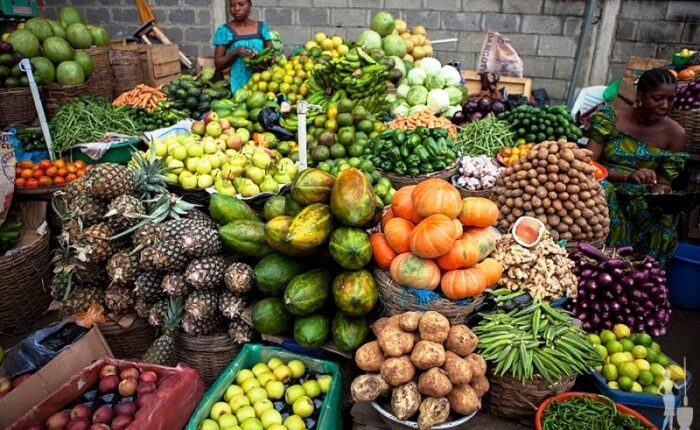
The Economic Commission for Africa (ECA) says food insecurity is a structural challenge in Africa, affecting 20 per cent of the continent’s population compared to the global rate of 9.8 per cent.
The Director of the ECA office for West Africa, Ngone Diop, said this in a statement at an expert group meeting of ECA Offices for North and West Africa in Accra.

The News Agency of Nigeria (NAN) reports that the meeting took place within the context of the second joint Intergovernmental Committee of Senior Officials and Experts (ICSOE) for North and West Africa.
According to Diop, to tackle this, three imperatives are evident, increasing agricultural and cereal productivity, mobilising more domestic resources, and expediting implementation of the Africa Continental Free Trade Area (AfCFTA).
“These serves as our cornerstone for poverty reduction and the acceleration of structural transformation,” she said.
She said in spite of its limited contribution to global warming, Africa was significantly affected by this phenomenon.
She said currently, 17 out of the 20 countries most threatened by climate change were located in Africa.
The director further said that climate change had already impacted about two to nine per cent of national budgets across the continent.
“According to the latest report from the Intergovernmental Panel on Climate Change (IPCC), North Africa and West Africa are particularly vulnerable with 1.5°C to 3°C expected temperature increases.
“This poses significant threat to the populations’ health, productivity and food security.
“In response to this situation, African countries have to redirect a growing portion of their public finances towards mitigation efforts and the protection of their populations.
“Thereby, depriving themselves of resources needed to finance development, safeguard development gains and implement the Sustainable Development Goals (SDGs),” she said.
Diop said these constraints underscore Africa’s crucial need to develop innovative growth models capable of preserving and enhancing the well-being of their populations while adapting to climate change and contributing to its slow down.
She said these models should include appropriate land and water management within the framework of sustainable agriculture.
The director said it should include the use of renewable energy to meet national energy needs in a variety of sectors including transportation, industries, heating, and cooling, etc.
She further sais that the establishment of financing models that could address such needs should also be taken into cognisance.
Also speaking, the Director of the ECA office for North Africa, Zuzana Schwidrowski, said estimate showed that water scarcity could affect up to 71 per cent of Gross Domestic Product (GDP) and 61 per cent of the population in North Africa.
“This is compared to 22 per cent and 36 per cent for the rest of the world. ”However, alternatives remain that by relying on renewable resources, we can address these challenges.
“We can also accelerate sustainable economic development and social development in the region, along with poverty reduction, job creation, and social equity,” Schwidrowski said.
NAN reports that other participants at the event examined the impact of climate change in both sub-regions.
They discussed practical measures for countries to adapt and safeguard their energy and food security, while advancing their development and made some important recommendations.
Experts, researchers, development practitioners, and representatives from 22 North and West African countries attended the meeting, and discussed three critical issues.
“The impact of climate change and its implications for economic and social development strategies.
“Energy security and climate change challenges, and especially the pivotal role of renewable energy in meeting the needs of the populations.
“And how intra-African trade can facilitate and accelerate the energy and agricultural transition, especially by contributing to food security and the emergence of sub-regional value chains in the agriculture sector.”
(NAN)


